by Justin Mckibben | Apr 18, 2018 | Addiction, Anti-Social Personality Disorder, Anxiety Disorder, Depression, Dual Diagnosis, Mental Health, Mood Disorders, Post-traumatic Stress Disorder, Schizophrenia
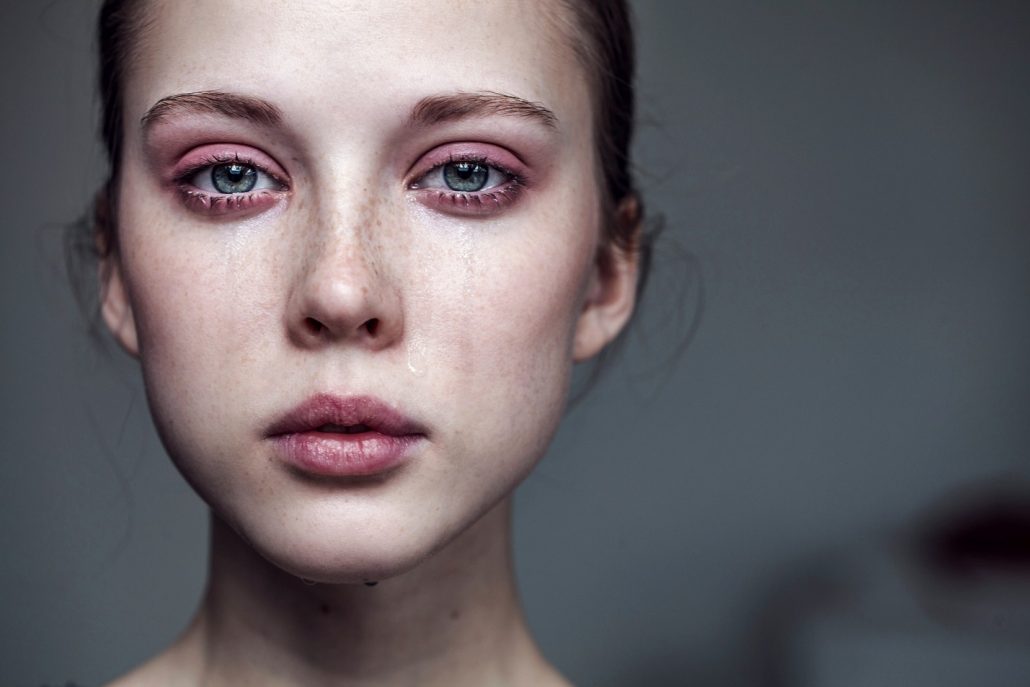
(This content is being used for illustrative purposes only; any person depicted in the content is a model)
It is not so far-fetched to be told that someone whose life is consumed with drug or alcohol dependency can find themselves facing the emotional and mental fallout. When dealing with mental health issues, it is not rare for people to also struggle with substance use disorder. Co-occurring conditions such as these tend to feed off of each other, or even help create one another.
It is almost like when someone has high blood pressure, we are not surprised when they develop heart problems. Sometimes side effects and symptoms of one condition can nurture new ailments.
According to so researchers, there are some more common combinations of co-occurring disorders with addictions. So which addictions are most likely to co-exist with each mental health condition?
Here are 5 of the most common co-occurring disorders with addictions (not in any particular order):
-
Schizophrenia with Marijuana Addiction
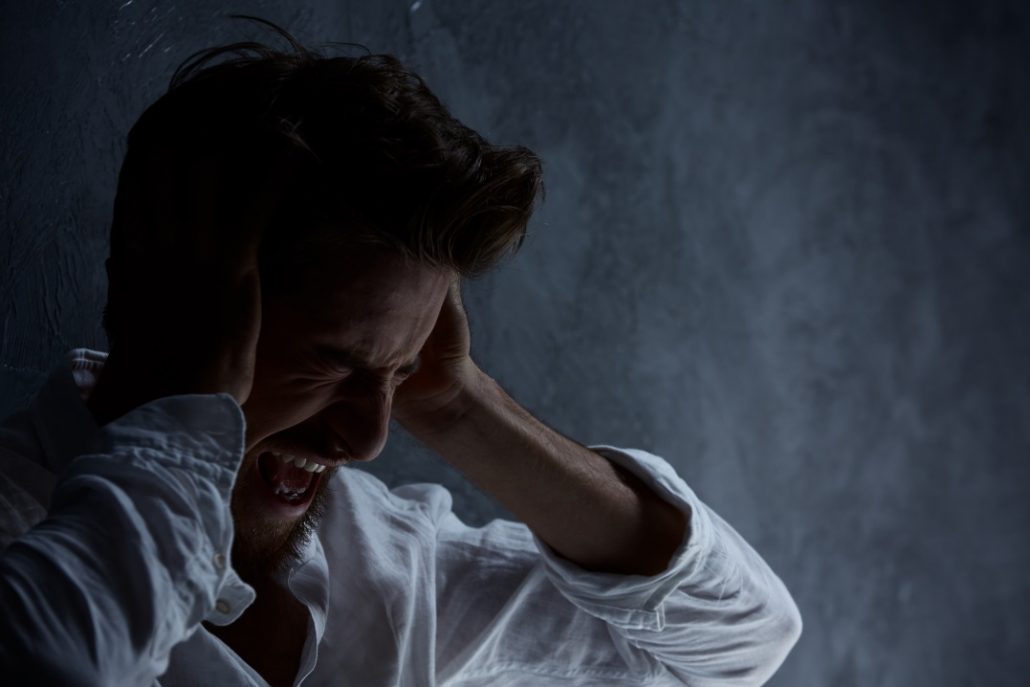
One disorder that commonly co-exists with a substance use disorder is schizophrenia. The American Journal of Psychiatry released a study that suggests approximately half of all people with schizophrenia also have a substance abuse disorder.
But one substance stands out the most when looking at people living with schizophrenia- marijuana.
The exact cause of schizophrenia is unknown, but many suspect a combination of environment, genetics and altered brain chemistry and structure to all play a part. So it is unclear why people with schizophrenia would abuse marijuana. Especially since this drug typically produces many of the same symptoms these people experience when in the midst of a schizophrenic episode. Some of these symptoms include:
- Short-term memory problems
- Delusions
- Unusual or dysfunctional ways of thinking
- Difficulty beginning and sustaining activities
- Impaired executive functioning
While not all symptoms are the same for everyone, some of these more common symptoms definitely overlap between the two. While it may not be obvious why, research suggests it is pretty obvious that marijuana is most popular for people with schizophrenia.
-
Alcoholism and Anti-Social Personality Disorder

You might be surprised with this one because most people assume alcohol is most commonly matched with depression.
Anti-social personality disorder is easier to understand when one explains the concept of personality disorders in general.
To put it simply, a personality disorder is an enduring pattern of personal experience and behavior that deviates noticeably from the expectations of the individual’s culture, which leads to personal distress of impairment. So antisocial personality disorder (ASPD) is characterized by a tendency to disregard and even violate the rights of others. Symptoms can vary from egregious to outright dangerous. They include:
- Irritability
- Aggressiveness
- Lack of remorse
- Consistent irresponsibility
- Recklessness
- Impulsivity
- Deceitfulness
- Lack of stability in a job and home life
- Disregard for society and laws
- Violation of the physical or emotional rights of others
Often the more intense cases earn the titles of sociopathic or psychopathic.
Alcohol abuse very frequency co-occurs with other mental health disorders. However, according to the National Institute on Alcohol Abuse and Alcoholism (NIAAA), the disorder with the closest connection to alcoholism is anti-social personality disorder.
In fact, people who drink to excess on a regular basis are 21 times more likely to deal with ASPD when compared to people who don’t have alcoholism.
The NIAAA also states that both of these disorders typically develop early in life. However, alcoholism can actually make the underlying mental illness worse. Intoxication can lower an individual’s inhibitions, which makes their antisocial behaviors more prevalent. This may also lead to more dangerous manifestations of the disorder.
-
Anxiety Disorders and Cocaine Addiction

Cocaine is an extremely powerful narcotic stimulant, which gives users feelings of intense euphoria. However, the tradeoff is a very steep price to pay considering how dangerous this drug really is. Continued cocaine use typically leads to symptoms that essentially mirror an anxiety disorder, including:
- Restlessness
- Hallucinations
- Paranoia
- Insomnia
- Difficulty concentrating
- Aggression
Because cocaine is a stimulant, it speeds up and amplifies activity of the brain’s neurotransmitters. Certain neurotransmitters at higher levels induce anxiety. So anxiety is actually a symptom of cocaine use already. Cocaine use also has the potential to create psychotic episodes. Some people even experience severe mental symptoms as a result of use.
As a long-term effect of cocaine use, brain circuits are more sensitive while struggling to respond to natural stimuli, and the results are often related to mood and mental health. Statistics show that there is a very high risk of anxiety and cocaine abuse occurring together. Then if you already have an anxiety disorder, the risk becomes even higher that you will develop a severe emotional problem when using a drug like cocaine.
While the adverse effects of cocaine use can eventually fade for those able to achieve a long-lasting sobriety, sometimes the damage lingers. Those unusual thoughts and behaviors can continue even long after someone has given up the drug.
-
Prescription Opioid Addiction and PTSD

Post-traumatic stress disorder (PTSD) is a mental illness that takes hold in the aftermath of an intense and traumatic experience. Often, people who survive tragedies, war and other dangerous or life-altering events will experience PTSD.
In some circumstances, people will leave their experience with serious physical injuries, and often, those injuries are treated with prescription painkillers. This is just one way that prescription opioids have contributed to a huge epidemic that has been hurting America for the past several years.
Prescription opioids often boost feelings of pleasure and calm inside the brain, and sometimes people who have PTSD end up abusing these medications in order to experience euphoria and numb themselves to not just their physical agony, but also their emotional trauma. This can become an endless cycle of self-medicating. This is especially true with veterans. In fact, some research indicates that veterans with pain and PTSD are 3 times more likely to receive opioids compared to those without any mental health disorders.
It is true that having effective pain medications is very important to improve the quality of life for those with physical pain, especially chronic pain patients. However, mixing powerful opioids like prescription painkillers with PTSD can lead to tragic outcomes. With increasing rates of veteran suicides over the past several years, one can only image what impact the surging opioid crisis may have had on those struggling with PTSD.
-
Depression with Heroin Addiction

Throughout one of the worst drug epidemics in American history, heroin has been a driving force behind countless overdoses and skyrocketing death rates. Heroin isn’t just devastating physically, but also mentally and emotionally crippling. The connection between these adverse effects and depressive disorders is remarkable.
The allure of heroin is that is can make users feel an overwhelming sense of pleasure for a short time. However, long-time use of heroin can burn out the portions of the brain responsible for producing natural signals of pleasure, leaving them incapable of feeling good on their own without the drug. The drug alters brain chemistry and creates mood changes.
Advances in Psychiatric Treatment estimates that 48% of opioid users have experienced depression at some point in their lives.
Extended use of heroin can eventually cause a form of brain damage that leads to depression. Users can become physically incapable of feeling happiness unless the drug is present. Withdrawal symptoms from heroin can also exacerbate symptoms of depression. Many of them are actually overlapping symptoms, such as:
- Restlessness
- Irritability
- Slow thinking, speaking or body movements
- Loss of interests
- Sleep problems
- Physical pains
- Headaches
- Changes in appetite
The combination of depression and heroin addiction is incredibly common. Sometimes it can be difficult for people to tell which issue came first, but ultimately they can both be exceedingly debilitating, or even deadly.
Dual Diagnosis Treatment
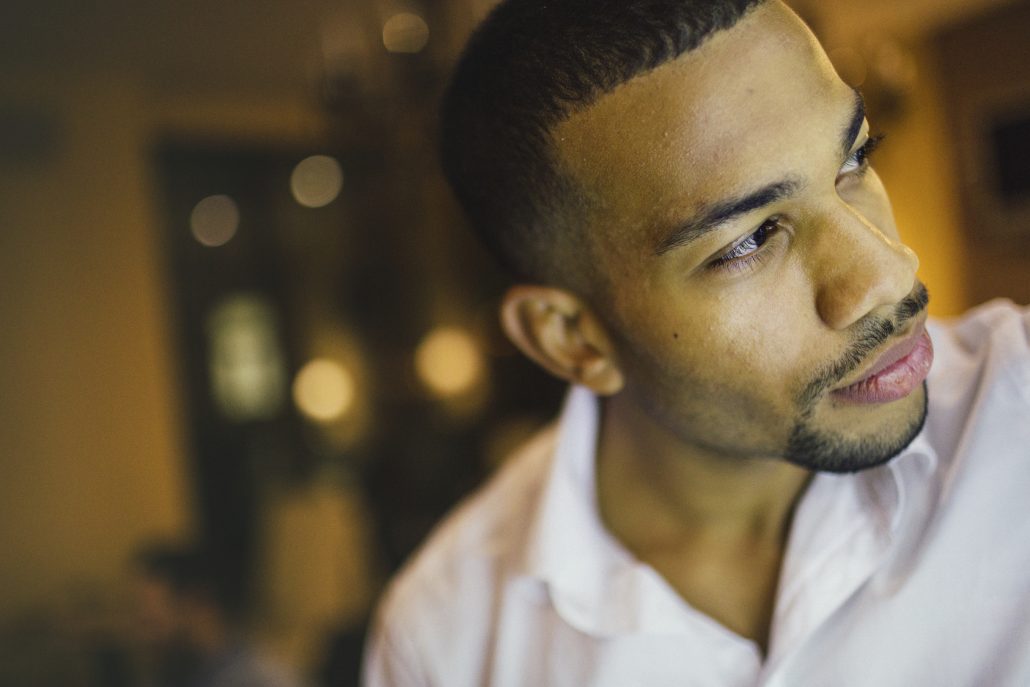
Dual diagnosis means that a person is dealing with two medical conditions that are co-occurring. In regards to the field of drug addiction, dual diagnosis specifically means that someone is struggling with both substance use disorder and another mental or behavioral health issue. Sometimes it is because prolonged drug use has contributed to developing a mental health issue, while other times it is because someone has tried to self-medicate when facing a mental health issue.
Dual diagnosis treatment is so important because it provides the opportunity to treat both co-occurring disorders simultaneously. For those suffering with more than one disorder, it is not nearly as effective to focus on treating one while ignoring the other. Holistic healing is all about addressing every aspect of each individual to help them find success in every part of their life.
Palm Healthcare Company believes in providing holistic addiction resources to help treat not just the addiction, but also any other issue that could be holding you back from achieving a full life of lasting recovery. If you or someone you love is struggling, please call toll-free now.
CALL NOW 1-888-922-5398
by Justin Mckibben | Feb 16, 2018 | Mental Health, Mental Health Stigma, News, Post-traumatic Stress Disorder, Stigma, Violence
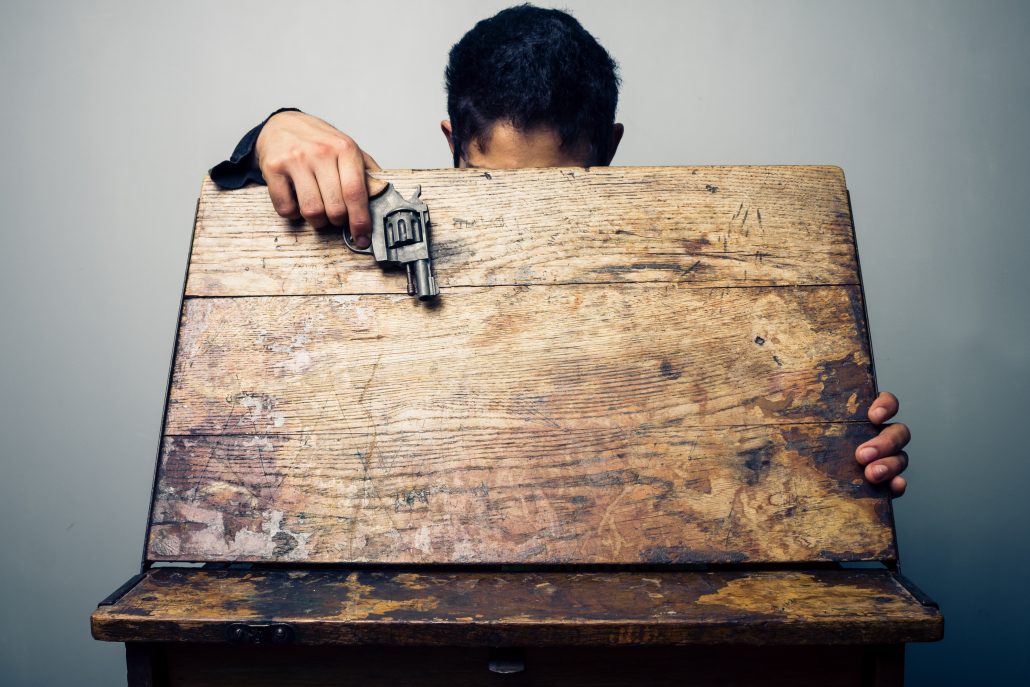
Only days after the horrific South Florida school shooting at Marjory Stoneman Douglas High School, we must take a hard look at the mental health debate, and why mental health should always have been a priority.
It seems like just yesterday I wrote about last year’s tragic mass shooting in Las Vegas and emphasizing how critical it is that mental health support and awareness be a serious and key focus of this conversation. The school where this tragedy took place is a mere 37 miles from where I sit and write this today. I lived within a 20-minute drive of the building for over 3 years. Now, with only a month and 15 days into 2018, we already up to 19 similar acts of terrible violence.
On Wednesday, February 14, Nikolas Cruz entered the high school in Parkland, Florida with an AR-15 rifle and took the lives of 17 people, wounding over a dozen others. This is America’s deadliest school attack in 5 years, perpetrated by a lone 19-year-old gunman with a reputation for disturbing behavior.
Yesterday, President Donald Trump included in his statement about the South Florida school shooting that there were “so many signs” the suspected shooter was “mentally disturbed.” But should mental health be our own focus?
It is extremely difficult to find answers to this complex problem. So what action should we take to change?
The Mental Chaos of Nikolas Cruz
Authorities have confirmed that Cruz was previously expelled from Marjory Stoneman Douglas High School for disciplinary issues. Reports from the school indicate Cruz as a potential threat who demonstrated a fixation on guns. This obsession can be seen on full display through the photos suggested to be pulled from Cruz’s social media accounts.
Reports said that teachers, classmates and even strangers were concerned about Cruz. One teacher apparently reported that administrators sent an email last year saying that Cruz was not allowed to carry a backpack on campus. Cruz’s adoptive father died a few years ago, and his adoptive mother, who was one of the only people the teen was ever close with, died around Thanksgiving. The orphaned 19-year-old had been living at a friend’s house, with some suggesting he was showing signs of depression. Some former friends have even said they cut ties with him after saying he liked to shoot animals. Classmates claim he used to sell knives out of a lunchbox in the school and even threatened students with violence.
Cruz had been suspended more than once before being expelled, for fighting and having bullets found in his backpack. While he had no criminal history prior to this appalling act of violence, he lived a troubling and chaotic life.
What was being done?
Failing to Catch Red Flags
While it is unfair to say there were no actions taken, those actions failed to put a stop to this tragedy. The Washington Post reports that Cruz had been getting treatment at a mental health clinic, but had stopped after less than a year. Some are insisting that not enough was done to try and address the many obvious issues shown in Cruz’s past. Howard Finkelstein, the chief public defender in Broward County, states,
“Every red flag was there and nobody did anything. When we let one of our children fall off grid, when they are screaming for help in every way, do we have the right to kill them when we could have stopped it?”
Even the FBI admits to receiving a warning about this individual and failing to act. With so many indications that Cruz was a threatening, violent and unstable individual it is deeply troubling that not only did he slip through the cracks of any efforts to curb mental health-related issues, but he was able to obtain a variety of weapons. Despite the many red flags, Cruz’s background wouldn’t disqualify him from purchasing the rifle he used in the shooting.
The Mental Health VS Gun Rights Debate
The biggest debate we see after each one of these terrible atrocities is that familiar blame game; Is it a ‘guns’ issue or a ‘mental health’ issue? Without picking a side, I’ll try to acknowledge a lot of the concerns. For example, there is an enormous amount of data showing that the rates of mental health disorders in the last few decades has increased at astonishing rates. Every year the mental health of our nation is dwindling. So is this the answer to the riddle? Some seem to think so. Others- not so much.
The current federal law already denies the sale of firearms to anyone who is considered “adjudicated as a mental defective” by a lawful authority or involuntarily committed to a mental institution. It also allows for states to create stricter restrictions. Some states have taken advantage of this and enacted legal channels for stripping firearms away from gun owners flagged as potential threats. However, some do not think this is enough. Others have even gone as far as directly linking mental health to gun rights.
- In Hawaii, a person diagnosed with a mental disorder may not own a gun without clearance from a doctor.
- California firearm owners can be disqualified from gun possession for five years if involuntarily confined to psychiatric care for 72 hours and deemed by medical professionals to be dangerous to themselves or others.
However, legal experts also warn that it isn’t as simple as identifying people with mental disorders. According to Fredrick Vars, a law professor at the University of Alabama,
“By and large, the people who engage in these horrific events don’t have obvious major psychiatric issues,”
Dr. Rozel, an associate professor of psychiatry at the University of Pittsburgh. He states that these broad restrictions based on a psychiatric diagnosis risk depriving hundreds of thousands of law-abiding people of their gun rights. Rozel goes on to say,
“Fundamentally, that’s the problem with focusing on the mental-health issue.”
According to a study by the U.S. Secret Service and Department of Education in 2004, conducted after the attack at Columbine High School, surveyed “targeted school violence”:
- Only 1/3 of perpetrators had ever received a mental-health evaluation
- Fewer than 20% of that 1/3 had been diagnosed with mental health or behavior disorder before the attack
The President of the American Psychological Association (APA) Jessica Henderson Daniel does not agree with automatically assigning the label of mental illness to school shooters. She and other experts believe such rhetoric oversimplifies the complex problem of mass violence while also stereotyping those who struggle with mental health disorders.
“Framing the conversation about gun violence in the context of mental illness does a disservice both to the victims of violence and unfairly stigmatizes the many others with mental illness.”
A senior policy adviser for the National Alliance on Mental Illness said in an interview that invoking mental illness in the gun-control debate is often more political than helpful to those who actually struggle with mental health issues. Many see it as a means to draw attention away from any discussion on gun control. So is it really that far-fetched to even consider an honest and thorough examination of how we might improve policies surrounding access to guns?
After all, American has more mass shootings than any other developed nation, and not even by a little. Studies indicate that the rate at which public mass shootings occur tripled since 2011.
From 1982 up to 2011, a mass shooting occurred roughly once every 200 days.
Then, between 2011 and 2014 that rate has accelerated to at least one mass shooting every 64 days in the United States.
Realistically, it is fair to question the idea that this is simply a mental health issue. It may be a piece of the problem. Yet there is so much more that needs to be addressed in order to work toward a future without this kind of senseless violence.
What Can Be Done For Mental Health?
The sad thing is, we should never have waited for any acts of violence to make mental health a priority. A wide spectrum of issues, including depression, anxiety, and substance use disorder are all very serious and very damaging conditions. Countless Americans still struggle and don’t even know it, or don’t have access to care.
Many argue that the way lawmakers are changing healthcare is making it harder for people to receive mental health services. So with all that has happened, will mental health truly become the priority everyone says it will be? Thursday President Trump promised to “tackle the difficult issue of mental health” while speaking in regards to this tragic incident. But how will these words be followed by action? The president’s current budget actually includes massive cuts to mental health resources, so will these resources be given new priority?
For trauma survivors, there is a whole other element to providing mental health support resources. Horrific incidents like this recent shooting create shockwaves throughout the community and impact the mental health of innumerable others. Students, families and friends, teachers and other officials like law enforcement are all exposed to a new level of unimaginable pain and suffering. We must also make their mental health a priority. But we need to stop waiting until something unspeakable happens before we worry about our nation’s mental health.
Our hearts break for all of our neighbors here in South Florida who are suffering. No matter what we do, be it changing our mental health care or any other policies concerning guns, we MUST DO BETTER!
If you or someone you love is struggling with trauma, depression, or any mental health disorder please seek help. If you struggle with substance use disorder, drugs or alcohol is not the answer. There is real help out there. Please call toll-free now.
CALL NOW 1-888-922-5398
by Sher Delva | Aug 30, 2017 | Addiction, Addiction Stigma, Drug Abuse, Mental Health, Stigma, Therapy, Uncategorized, Withdrawal
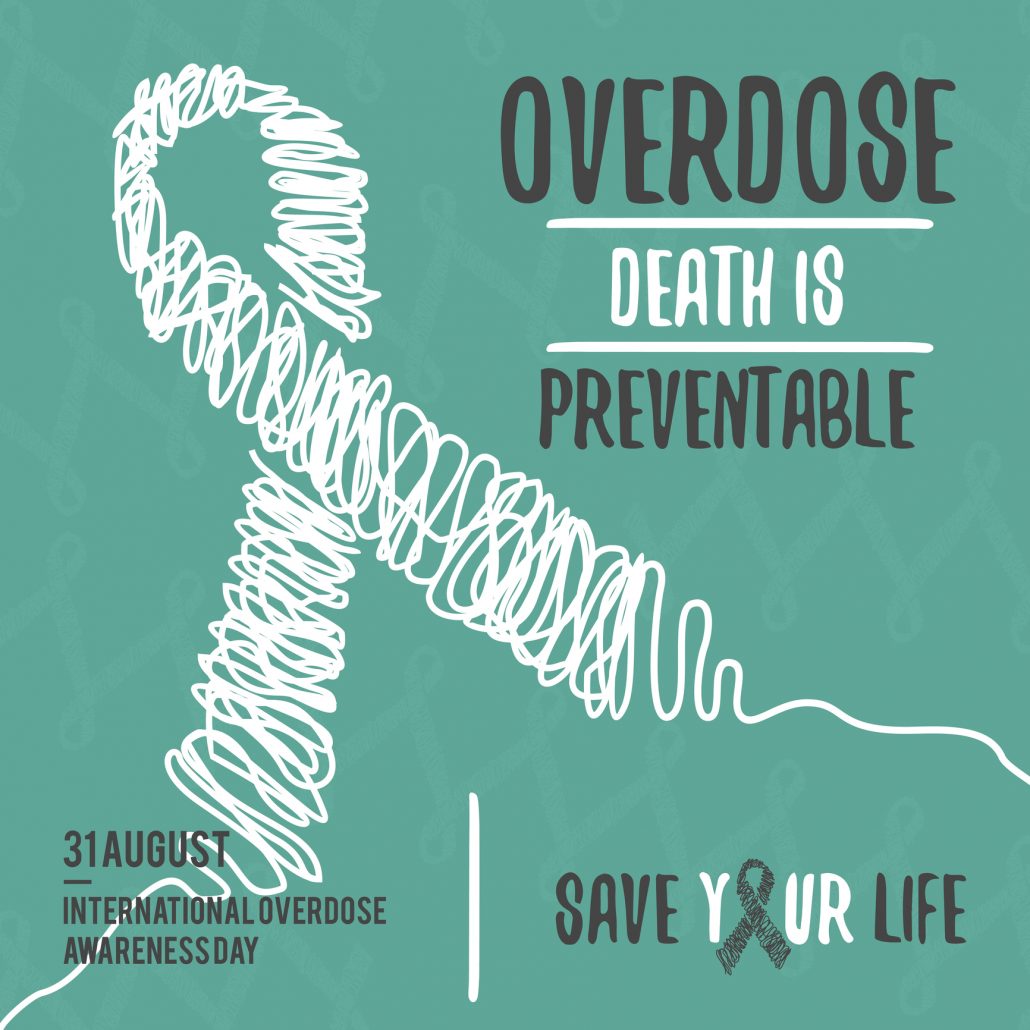
Today, August 31, marks International Overdose Awareness Day. The purpose of this day is to raise awareness and reduce the stigma of drug-related deaths. This day intends to acknowledge the pain and hardship felt by friends and family who have suffered the loss of a loved one due to a drug overdose.
International Overdose Awareness Day is a day that hopes to reduce the shame and guilt that is so often associated with addiction. The day aims to provide an opportunity for people to publicly mourn for loved ones without feeling guilt or shame.
International Overdose Awareness Day Focuses on:
- Giving communities information about fatal and non-fatal overdoses
- Sending a strong message to current and former drug users that they are valued
- Providing essential information regarding resources available in their community
- Raising a discussion about overdose prevention and drug policy
- Preventing and reducing harm by supporting evidence-based policies and practices
The Shocking Reality
Drug overdoses are the number one cause of preventable death in America. Today is a day to spread awareness to others about the disease of addiction. Addiction does not discriminate. It affects everyone.
The United States is facing a major drug epidemic.
Facts & Stats:
- The United States accounts for approximately one-quarter of the estimated number of drug-related deaths worldwide.
- Overdose deaths continue to rise, and these overdoses are driven by opioid use.
- Overdose deaths have more than tripled in the United States during the period of 1999-2015, from 16,849 to 52,404 annually.
- A recent report by STAT states the opioid epidemic is predicted to get a lot worse before it gets any better if it gets better at all.
- The third quarter of 2016, saw all drug overdose deaths peak at 19.9 cases for every 100,000 people, compared to the 16.7 in the same period last year.
- Another report found that the number of drug overdoses involving opioids between 2008-2014 was likely underestimated by 24%.
- Substances like fentanyl are close to 50 times stronger than heroin, and the increased presence of these opioid have significantly increased the number of opioid overdoses.
So what is an overdose exactly?
An overdose means taking too much of a drug or a combination of drugs for a body to tolerate. Overdose symptoms vary depending on the drug abused. Opioids, benzos, and alcohol all cause overdoses. These drugs slow down the nervous system which includes breathing and heart rate. Too much of these substances can kill or cause permanent brain damage to the user.
Signs of a drug overdose on opioids include:
- Shallow breathing or not breathing at all
- Snoring or gurgling sounds (this can mean that a person’s airway is partly blocked)
- Blue lips or fingertips
- Floppy arms and legs
- No response to stimulus
- Disorientation
- Unconsciousness.
If you think someone has overdosed, please seek help immediately. Not all overdoses happen quickly, and it can take hours for someone to die from an overdose depending on the severity. Naloxone, known by the brand name Narcan, is an overdose antidote that reverses an overdose from opioids.
Fight to Increase Access to Narcan
Narcan is now in the hands of first responders. It can be found in schools and even over-the-counter depending on the area you reside. Please look into where you can purchase and receive training.
If you know someone who has overdosed, show your support on International Overdose Awareness Day. Now, more than ever is the time to share the truth about addiction. We need to end the stigma.
How to Get Involved
There are a variety of resources available on the International Overdose Awareness Day website. The website has an area where loved ones can write and grieve anyone they have lost. These tributes are where many share the impact drug use, and overdoses have had on their family and friends. There is also an overdose awareness app that shares information on what an overdose is, and the main overdose symptoms. Please see the website for more information and to look for events in your local area.
—-
How are you going to raise awareness of International Overdose Awareness Day? The impact of addiction continues to influence the lives around us. Let’s end the stigma. If you are struggling with substance abuse, do not wait for it to progress into an overdose. We can help you get back on track. Please call toll free today. Do not wait.
CALL NOW 1-888-922-5398
by Sher Delva | Aug 21, 2017 | Addiction, Anxiety Disorder, Drug Abuse, Internet, Therapy, Withdrawal
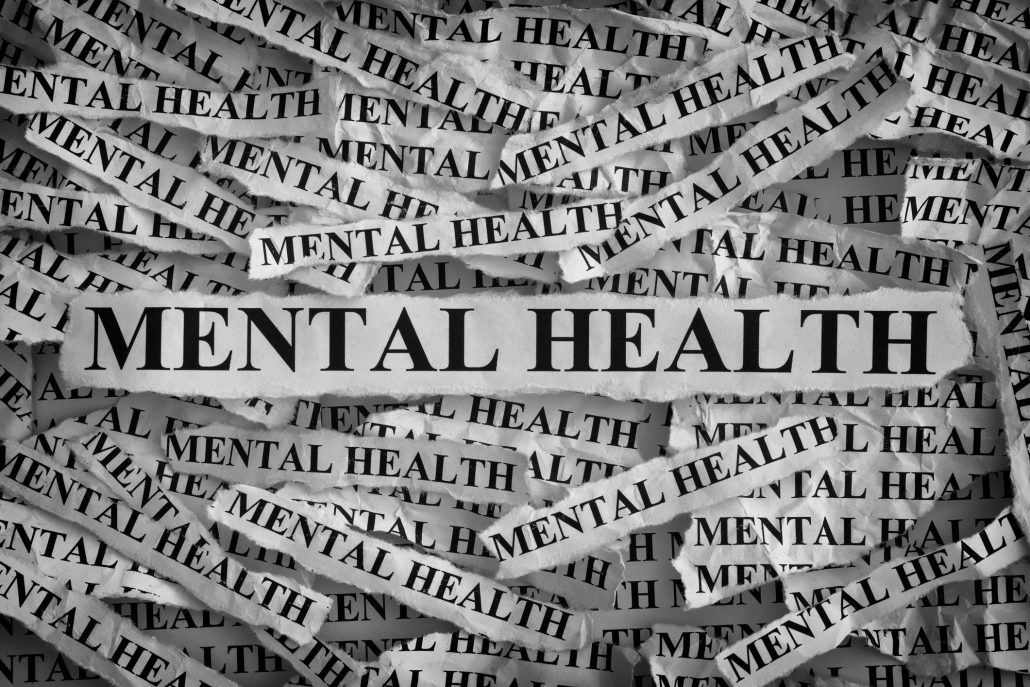
Lady Gaga continues to pave the way for mental health awareness, and now she’s bringing that awareness on her upcoming tour.
Gaga’s Born This Way Foundation has partnered with the National Council for Behavioral Health to bring Mental Health First Aid training to every American city on her Joanne tour. Lady Gaga and her mother, Cynthia Germanotta, want fans to be better prepared to help those struggling with mental health and substance abuse.
The training, described as “CPR for the mind,” will consist of an eight-hour-long course that teaches and provides the tools needed to help someone with mental health challenges. While the training does not turn people into crisis counselors, it does help people better understand how to identify and respond to signs of mental illness. The objective is to train 150,000 people by the end of 2017.
Since 2008, over 1 million people received training in Mental Health First Aid.
“To us, [the training] is so vitally important because there’s still a very large stigma around mental health, and around talking about it and providing help for people who are experiencing a mental health crisis,” Cynthia Germanotta told Mashable. “It’s really been invaluable because there’s just a comfort level knowing that if you see someone in crisis, you can have a conversation with them and hopefully determine how severe it is.”
Earlier this year, the Born This Way Foundation released its report regarding factors that influence mental wellness in young people. The results were gathered through surveying over 3,000 young people between the ages of 15 and 24, and over 1000 parents.
The findings confirmed that having a network of friends, community support, and access to resources was crucial for the mental well-being of young people. The report also found a dire need for more resources for young people to take better care of their mental health.
Mental Health First Aid Training:
These findings make Mental Health First Aid training even more valuable. These training help people obtain the tools and confidence needed to encourage friends and family seek help. Often, young people are not willing to talk to older adults or their parents.
Germanotta told Mashable about how Gaga was bullied in middle school, which inspired them to be a part of this mission. In the past, Lady Gaga has opened up about her mental health challenges, including her PTSD diagnosis.
Back in December 2016, Lady Gaga first revealed during an emotional visit with homeless, LGBTQ teens in New York that she had struggled with PTSD. She visited the Ali Forney Center to surprise teens with gifts as part of Today and NBC Universal’s #ShareKindness campaign.
“These children are not just homeless or in need. Many of them are trauma survivors. They’ve been rejected in some type of way,” Gaga said. “My own trauma in my life has helped me to understand the trauma of others.”
Furthermore, Gaga hopes her efforts during this upcoming tour will make an impact on the lives of young people.
What do you think about Gaga and her mother’s mission on the Joanne tour? Should other artists consider promoting similar programs? PTSD is not a laughing manner and if left untreated, can cause further mental health struggles, even substance abuse. Please reach out if you are struggling. No one should have to battle this on their own. If you or someone you love is struggling with mental illness or addiction, please call toll-free 1-800-777-9588.
CALL NOW 1-888-922-5398
by Sher Delva | Aug 18, 2017 | Addiction, Drug Abuse, Family, Mental Health, Mood Disorders
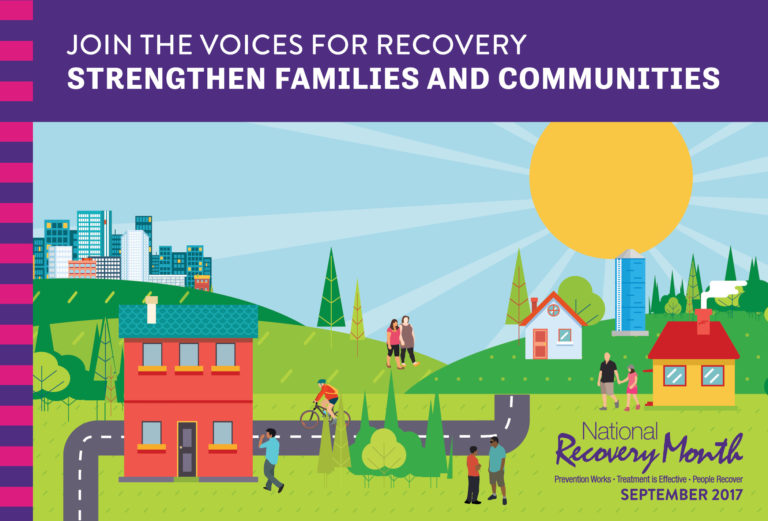
We are pleased to announce Dug and Heidi McGuirk of Palm Healthcare as special keynote speakers for this year’s Broward Recovery Month Event!
The Broward Recovery Event will honor special individuals in the community who are powerhouses for the recovery community.
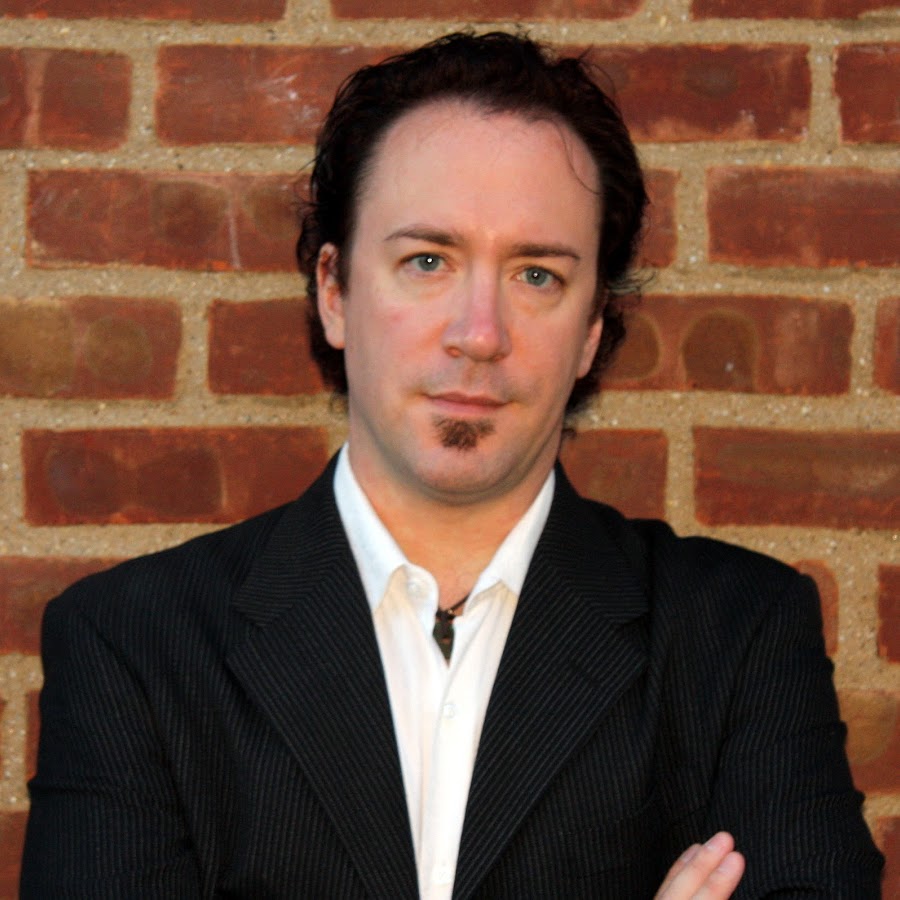 Dug McGuirk is an accomplished entrepreneur and inspirational speaker. As co-founder of Revolutionary Health, Dug is committed to transforming lives. Dug McGuirk is the VP of Training and Development for Palm Healthcare Company where he regularly teaches a variety of transformative classes.
Dug McGuirk is an accomplished entrepreneur and inspirational speaker. As co-founder of Revolutionary Health, Dug is committed to transforming lives. Dug McGuirk is the VP of Training and Development for Palm Healthcare Company where he regularly teaches a variety of transformative classes.
 Heidi McGuirk is an author, co-founder of Revolutionary Health, Master Relationship Coach and addiction professional who teaches several weekly classes at Palm Healthcare.She is the creator and CEO of Love Coach Heidi where she helps recovering co-dependent women learn how to love themselves first.
Heidi McGuirk is an author, co-founder of Revolutionary Health, Master Relationship Coach and addiction professional who teaches several weekly classes at Palm Healthcare.She is the creator and CEO of Love Coach Heidi where she helps recovering co-dependent women learn how to love themselves first.
Dug and Heidi both created an amazing family program for the families of addicted loved ones. The Family Program helps families navigate addiction and understand how to help their loved one instead of hurting them.
We would like to offer you the FREE GIFT of a checklist to help decipher if you are helping or hurting a loved one who is struggling with addiction.
Click for FREE GIFT
We encourage all to come out and support them in this year’s Broward Recovery Month event. Even if you are not familiar with the incredible work Dug and Heidi McGuirk do, you will gain so much from attending the event and hearing their words of inspiration and hope.
Here are the details:
Broward National Recovery Month Event:
When: September 9th from 11-3
Where: The War Memorial Museum
800 NE 8th St, Fort Lauderdale, FL 33304
What: Join special keynote speakers Dug and Heidi McGuirk for FREE food, fun, and inspiration.
This year’s theme for Recovery Month 2017 is Join the Voices for Recovery: Strengthen Families and Communities.
September marks the 27th anniversary of National Recovery Month. The purpose of National Recovery Month is to increase awareness and understanding of mental and substance use disorder and celebrate people who DO recover.
The 2017 theme highlights the value of family and community support. Recovery Month invites individuals in recovery and their family members to share their personal stories and successes to inspire and encourage others.
Broward Recovery Month will be an exciting, INSPIRING event for all to attend. You can make a difference by joining in the Recovery Month Effort.
Support is crucial when it comes to addiction recovery.
Events that support recovery help encourage and inspire those struggling with their addiction, as well as give an outlet to those who have had amazing success in recovery. These events were created to join the recovery community together and celebrate those who have achieved success in their journey.
Broward’s Recovery Month Celebration “honors outstanding individuals who have made significant contributions to helping people in our county remain sober.”
Overall, National Recovery Month helps instill a sense of belonging, safety, and security to the recovery community. This year, we encourage you to participate in events in your community that support addiction recovery. There are events happening nationwide for you to attend.
Whether you are new to recovery or have years of sobriety under your belt, everyone can benefit from attending major events like this. Families of addicted loved ones are strongly encouraged to attend because this year’s National Recovery Month specifically focuses on strengthening families. Families know more than anyone that addiction does not affect just the addict, it affects everyone around them too.
Millions of lives have been transformed through recovery. Often, these successes go unnoticed. Recovery Month is an excellent way for everyone to celebrate these accomplishments.
Addiction affects everyone, not just the addict. Therefore, if you or someone you know is currently struggling, please reach out. We want to help. Do not wait. Please call toll-free now.
CALL NOW 1-888-922-5398











 Dug McGuirk is an accomplished entrepreneur and inspirational speaker. As co-founder of Revolutionary Health, Dug is committed to transforming lives. Dug McGuirk is the VP of Training and Development for Palm Healthcare Company where he regularly teaches a variety of transformative classes.
Dug McGuirk is an accomplished entrepreneur and inspirational speaker. As co-founder of Revolutionary Health, Dug is committed to transforming lives. Dug McGuirk is the VP of Training and Development for Palm Healthcare Company where he regularly teaches a variety of transformative classes. Heidi McGuirk is an author, co-founder of Revolutionary Health, Master Relationship Coach and addiction professional who teaches several weekly classes at Palm Healthcare.She is the creator and CEO of
Heidi McGuirk is an author, co-founder of Revolutionary Health, Master Relationship Coach and addiction professional who teaches several weekly classes at Palm Healthcare.She is the creator and CEO of 
